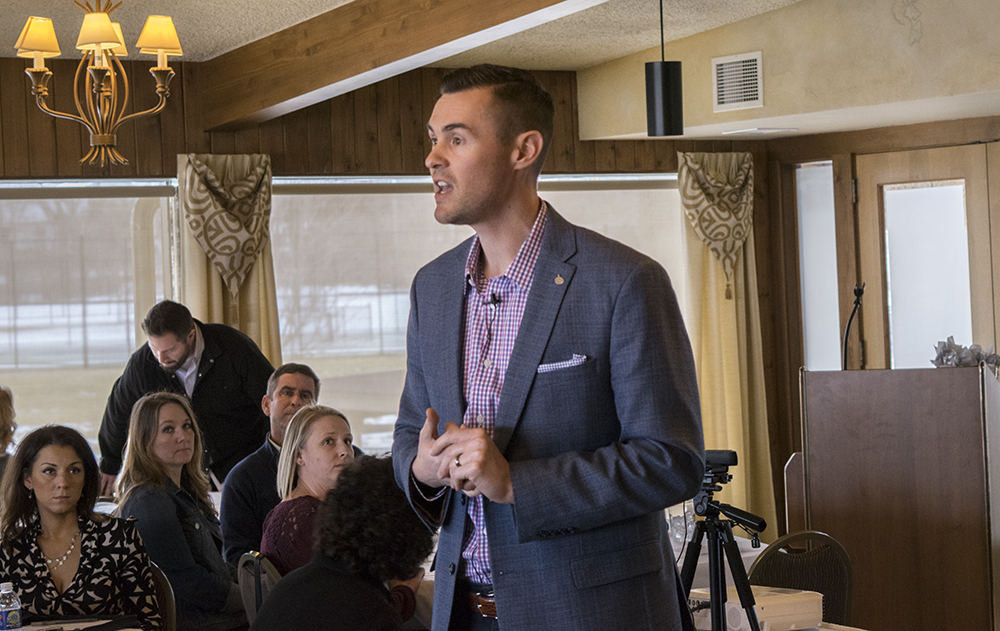
You will not find happiness at work.
Not if you follow the common cliched advice that circulates most business publications, self-help blogs, and psychology papers.
Included in common “Happiness” advice are a few very surface-oriented items:
Included in the same list above are two drastically more ethereal pieces of advice:
That final piece of advice, “Do something you love,” is appropriately the most dangerous. You’ve heard this platitude a thousand times in your life:
“If you do something that you love, you’ll never feel like you’re really working.”
Finding Peak is a reader-supported publication. To receive new posts and support my work, consider becoming a subscriber.

This advice is completely bollocks.
And by Bollocks, you can take that to mean testicles or nonsense, as I feel both are appropriate in this case.
A recent study from Gallup reported that for between 55 to 80 percent of American workers, it’s normal to see work as something to be endured, not enjoyed.
These people think going to work with a smile, looking forward to Steve in accounting’s birthday party, and being themselves will help them find happiness at work.
It is not.
Unless these people dig deeper, they will be sentenced to mundane, at worst, miserable days at work for the rest of their lives.
According to research done by the iOpener Institute2, employees who feel happy in the workplace are 65% more energetic than employees who don’t. They are two times more productive and are more likely to sustain their jobs over a long period of time.
Put in more tangible terms, “happy” workers stay on task 80% of the time compared to their “unhappy” peers, who stay on the task only 40% of the time.
In effect, an organization is losing about 100 days’ work – or about 3.5 months for every really unhappy employee.
The iOpener Institute found in their research that happiness at work is made up of 5 important components, which they call the 5Cs:
I might throw in a sixth C into the mix:
Tracking these six C’s as an organization provides a scorecard for the happiness and productivity of a workplace.
Versus the farce most organizations call performance reviews, using these six components of happiness at work could provide far more value to leadership than the standard, “Did they do their job?”
No.
“It’s all very well to think the meaning of life is happiness, but what happens when you’re unhappy? Happiness is a great side effect. When it comes, accept it gratefully. But it’s fleeting and unpredictable. It’s not something to aim at – because it’s not an aim. And if happiness is the purpose of life, what happens when you’re unhappy? Then you’re a failure. And perhaps a suicidal failure. Happiness is like cotton candy. It’s just not going to do the job.”
~ Jordan B Peterson
You should not pursue happiness at work.
This doesn’t mean happiness (and hopefully some contentment) at work is impossible. It’s possible and quite wonderful in the moments you find it.
However, as Dr. Jordan B Peterson explains, happiness is a great side effect.
Seek responsibility instead.
The world is harsh and filled with obstacles. Whether you’re looking to start a business, develop your career, optimize your team, monetize a side hustle or dominate an industry, vicious forces are lurking around every corner who will happily tear you down.
In overcoming these obstacles, (whether it’s restarting after a setback, firing a key team member, making a poor decision, etc.), you will find yourself, at times, incredibly unhappy.
And as Peterson asks, “…if happiness is the purpose of life (and work), what happens when you’re unhappy? Then you’re a failure.”
Where does that get you?
Certainly not on the path the happiness. Do not pursue happiness, allow it to be a “great side effect,” and instead seek responsibility.
Happiness is derived from meaning and meaning is derived from responsibility.
Therefore, the responsibilities we’re willing to bear (in our personal and professional lives) produce lasting happiness and contentment.
“The purpose of life is finding the largest burden that you can bear and bearing it.”
~ Jordan B Peterson
A heavy idea for sure, but as our world becomes more secular, consumerist, and divisive, more important than ever before.
Only through the intentional pursuit of responsibility and meaning can we make incremental improvements to our everyday happiness at work.
No matter what you do, happiness at work will be fleeting. You have moments of happiness, which inevitably will fade. But the opposite is also true. Your feelings of frustration, bored, or even anger at work will also fade.
Your goal shouldn’t be to achieve a state of perpetual happiness. That is an impossible expectation that will only make happiness more difficult to attain.
The trick is to find happiness in the pursuit. Seek responsibility and find meaning to create moments of happiness. We’re not trying to become robots, just better versions of ourselves: happy, purpose-driven versions.
The pessimist sees difficulty in every opportunity. The optimist sees the opportunity in every difficulty.
~ Winston Churchill
This is the way.
Hanley
p.s. if you enjoyed this article, you’ll love the Finding Peak Podcast.



© Copyright 2025 Finding Peak LCC
All rights reserved.